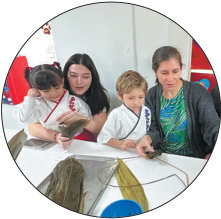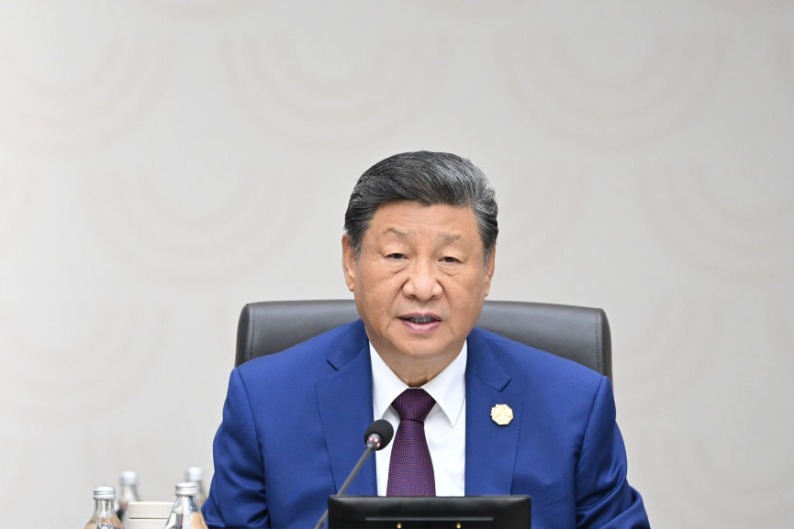Connections that bind pass through classrooms
By SHAO XINYING | CHINA DAILY | Updated: 2024-11-18 09:21

Impressive trip
The visit to Beijing Foreign Studies University was "impressive", he said. "It was very important for advancing these new partnerships and showing that we're eager for more."
Ferreirinha hopes more Chinese will study Brazilian Portuguese because the majority of the Portuguese speakers in the world are Brazilians, he said.
Wang Yifan, a student at Beijing Foreign Studies University who has been learning Portuguese for almost eight years, said, "I first learned about Brazil in high school, where it was described as a melting pot of cultures, and that got me curious enough to decide to study Portuguese."
Ye Zhiliang, a professor in Portuguese studies at the university who has compiled many textbooks on the language, said: "We arouse students' interests by integrating interesting topics in our curriculum, including chapters focused on topics related to Brazil, such as soccer, which is highly important to Brazilians."
Wang said he finds Portuguese grammar particularly intriguing, comparing its varied verb conjugations, tenses and voices to a series of mini-games.
"It's like choosing the right game mode based on context, which is challenging and fun," Wang said.
Learning Portuguese allows students to engage with Brazil's society, culture, politics and economy, Ye said.
"Mastering the language helps facilitate effective communication with Brazilians."
In 2016, Beijing Foreign Studies University established its Brazil alumni association in Rio, reflecting the ties between the two countries.
"Rio, once Brazil's capital, is rich in history, with many buildings and traces of the past," Ye said. "The city also boasts a vibrant cultural atmosphere, with important universities, research institutions and artistic organizations — somewhat like Beijing."
Wang, who has taken part in two exchange programs in Brazil, said: "The bond with Brazil will forever endure."
























